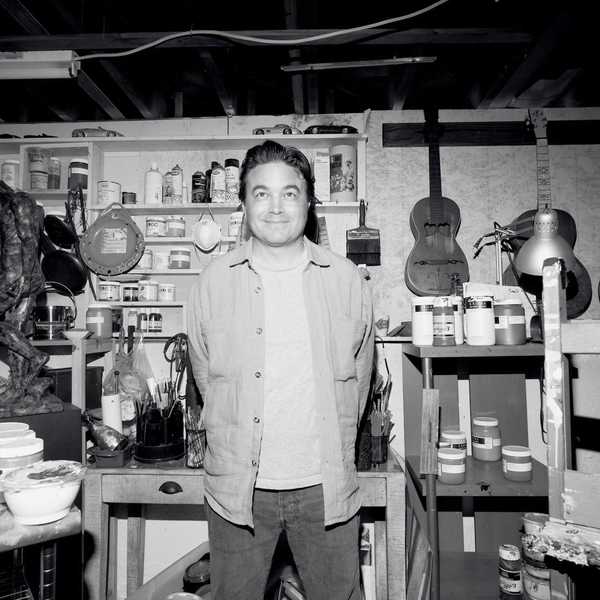Piers Henwood Speaks Out: There's More To Music Than Metrics
Piers Henwood has had a colourful, diverse and successful career in the entertainment industry, as a manager (Tegan & Sara, Buck65),

By Piers Henwood
Piers Henwood has had a colourful, diverse and successful career in the entertainment industry, as a manager (Tegan & Sara, Buck65), musician, VC investor, and advocate for the LGBTQ+ communities. His column today examines the music industry’s obsession with metrics (A&R now the acronym for analytics and research) and how this reliance on numbers rather than the music can have an adverse effect on creativity.
I have a theory that some of the greatest songs ever written would have gone unnoticed had they been released today. The recent UK Parliamentary report on the Economics of Music Streaming adds weight to this thesis.
Like A Rolling Stone, A Day In The Life, and Good Vibrations consistently land atop Greatest of All Time lists, but each of them would have probably been throttled by modern streaming platforms.
Too long. Too many mood shifts. Too different from each band's previous catalogue. Looking for a major playlist add to build an audience?
Too bad.
To be clear, I'm a massive fan of streaming and all the positives the major platforms have brought to artists and consumers around the world. Without wading into the report’s findings around compensation equity, I believe that streaming empowers the median artist – by democratizing global distribution and giving musicians more career control than anytime in history. Artists can now build audiences while bypassing traditional gatekeepers. Not to mention, streaming has revolutionized music consumption for hundreds of millions of happy music fans, by increasing its accessibility and portability.
However, when it comes to audience growth, streaming algorithms have become a different kind of data-based gatekeeper. With their reliance on data, streaming platforms paradoxically bring equal parts freedom and constraint to the artistic process. We need ongoing advocacy to ensure that algorithms don’t commoditise art and limit artistic pursuit.
As the UK report confirms, streaming algorithms tend to encourage commoditization by rewarding short intros, quick hooks, short song lengths, and consistent moods. Personally, I happen to enjoy these characteristics, and great songwriting often observes them closely. But putting my own tastes aside, a handful of multi-national companies shouldn’t become the sole arbitrators of creative characteristics if we want popular music to continue to push boundaries as a vital art form.
Steve Jobs famously remarked, "Some people say, 'Give the customers what they want.' But that's not my approach. People don't know what they want until you show it to them. That's why I never rely on market research.”
I believe we need to be open to the same fundamental logic in the arts and popular music. In particular our dominant streaming platforms shouldn’t let data around the so-called skip rate – the rate at which listeners skip past a song within the first 30 seconds, which is akin to Jobs’ definition of market research – become an all-defining metric. Many of our favourite songs of all-time would have likely been throttled by a high skip rate during the first week of release, due to the natural human bias towards familiarity. Even carefully crafted pop songs often need multiple listens to properly digest, let alone songs that slowly unfold and challenge convention.
The best songwriters are mathematicians and magicians. The construction of a great song typically combines predictable elements (math) with intangible surprise (magic). The songwriter as mathematician often welcomes the challenge of packing emotional impact quickly, but that’s not the only type of valuable songwriting. The actual measure of a song should be its overall emotional impact, not just listener data from the first 30 seconds.
We also can’t let streaming algorithms constrain creative evolution across careers. Great artists need to envision career arcs, and long-term careers often need significant stylistic evolution for the creator to do his or her best work. If an artist makes a sonic departure from prior successful releases, current algorithms might stop that new song from being recommended as widely. If your creative palette shifts dramatically, you might be going back to the starting line.
Faced with these market constraints, artists aren’t encouraged to evolve. Bob Dylan might not have gone electric had he needed to worry about algorithms in 1965, and the world would never have gotten the masterpiece Like A Rolling Stone. The Beatles might not have gone from singing I Want To Hold Your Hand to A Day In The Life. And Brian Wilson would have been stuck repeating the recipe of Surfin’ USA, never conceiving the pocket symphony that became Good Vibrations.
So let’s ensure that technology works in favour of creative evolution, or at minimum doesn’t penalize it. Experimental outliers often drive creative progress in music. Artists need to be encouraged to do what they do well, but great artists also need freedom to see things that haven’t been seen before, and create sounds that haven’t been heard before.

















